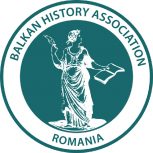The more than millennia-long presence of Armenians in Balkan countries made this region one of the closest destinations of the Armenian exodus both geographically and culturally. The Byzantine Empire with its large Armenian population had emperors of Armenian descent. One of the most famous persons in Bulgarian history, Samuel of Bulgaria, was half-Armenian. Neighboring to the Ottoman Empire, the Balkans became first shelter for many Western Armenian survivors of continuous persecutions and massacres from 1890s to 1920s. Romania has eminent Armenian communities from medieval times until now, while Greece, Bulgaria, ex-Yugoslavian countries and Albania became home for many Armenians after the large-scale massacres in the Ottoman Empire. Nowadays heirs of Armenian immigrants are actively involved in social, economic and cultural life in almost all Balkan countries.
The Balkan History Association is preparing a volume on Armenian migration in the Balkans and cultural exchanges. Historians and other interested researchers are invited to submit book chapters dealing with the following topics: Armenians in Ancient Greece; Armenians from the Byzantine Empire to Balkans: exiles and czars; Paulicians and their transformations in Balkans; Armenian influence on Balkan church architecture, Armenian traces in Balkan countries; Armenians’ role in the 19th-century cultural awakening of Balkan nations; the Eastern Question: Balkan and Armenian liberation movements; Romanian Armenians: a dynamic minority from the Middle Ages to nowadays; Greece as the first shelter for Armenian refugees; coffee-makers and artisans: genocide survivors in other Balkan states; Armenian participation in 20th–21st century Balkan cultures.
Submission procedure
The volume will be published by Peter Lang (in the series “South-East European History”). Original manuscripts should be prepared following the Peter Lang editorial guide available on its website, especially “Style Guidelines – British English” and “Submission Guidelines“. You can see the chapters of this open access volume to understand how manuscripts should be edited. Manuscripts must not have already been published, submitted for publication, or made available on the internet elsewhere. Interdisciplinary work is particularly welcome. Please submit your proposal, including the title of your manuscript, an abstract (up to 300 words), and an author’s biography (up to 100 words) to each of the editors. The abstract should include the research question and the purpose, approach, main ideas, and results of the research. No figures, tables, footnotes, or endnotes should be included in the abstract. Articles should not exceed 8,000 words in length, including footnotes and references (reference list or bibliography). The volume may contain up to 20 black-and-white images.
Deadlines
December 31, 2022: Submission of proposals to editors
January 9, 2023: Notification of accepted proposals
April 24, 2023: Receipt of final papers for peer review
May 22, 2023: Revised chapters re-submitted to editors
Editors
Edgar Hovhannisyan (Armenian State Pedagogical University, Yerevan), hovhannisyanedgar@yahoo.com
Lucian Nastasă-Kovács (Institute of History “George Bariţiu“, Cluj-Napoca), lucian.nastasa@gmail.com
Maria Spiliotopoulou (Modern Greek History Research Centre, Academy of Athens), mspil@academyofathens.gr
Arsen Harutyunyan (Institute of Archaeology and Ethnography, National Academy of Sciences of the Republic of Armenia, Yerevan), ars.vimagraget@gmail.com
Please circulate this call for papers among your colleagues and other potentially interested scholars.

